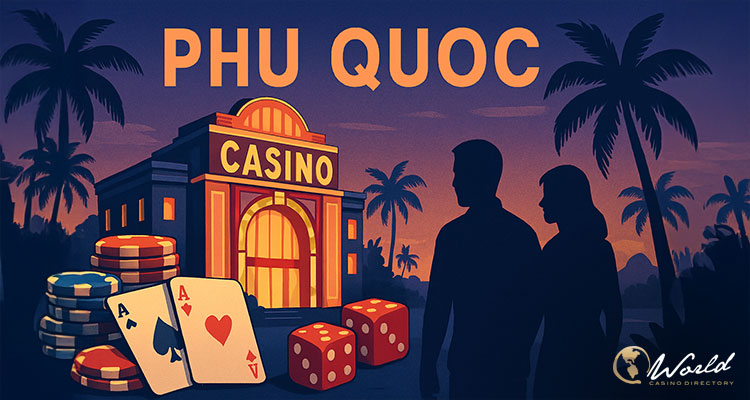Vietnam’s casino industry is under mounting financial strain, with Phu Quoc’s Corona Resort & Casino revealing heavy first-half losses in 2025, further highlighting the divide between major operators.
Figures released by Phu Quoc Tourism Development and Investment JSC and cited by Tuoi Tre News show that the Corona Resort & Casino reported a loss of VND564 billion (US$21.4 million) for the six months ending June 30, 2025. This marks a significant deterioration from the VND332 billion (US$12.6 million) loss posted during the same period in 2024.
The company’s cumulative losses since launching in 2019 now stand at VND5.5 trillion (US$208 million). Over the past year, its equity dropped sharply, falling from VND1.99 trillion (US$75.4 million) to just VND960 billion (US$36.4 million). Consequently, its debt-to-equity ratio has worsened, climbing to more than 20 times, compared with roughly 14 times a year earlier.
While the resort’s overall liabilities eased slightly to VND40.7 trillion (US$1.5 billion), its bank loans rose from VND217 billion (US$8.2 million) to VND324 billion (US$12 million). Bond obligations, meanwhile, held steady at VND7.5 trillion (US$285 million).
Positioned as one of Vietnam’s most ambitious luxury tourism projects, the Corona Resort & Casino stretches across more than 1,176 hectares and boasts premium villas, hotels, a world-class golf course, and one of the country’s largest casino complexes.
Impact of the Locals Gambling Program
Corona holds a unique place in Vietnam’s gaming industry, being the only casino permitted to participate in a government-backed pilot program allowing locals to gamble between 2019 and 2022. However, evaluating the project’s effectiveness has proven difficult. The COVID-19 pandemic disrupted operations soon after the program began, and Phu Quoc itself does not have a large resident population to drive significant domestic play.
Reports indicate that during the pilot’s first three years, just 5% of the casino’s revenue came from local Vietnamese players. Even so, authorities are preparing to extend the privilege indefinitely. Under new rules being considered, local customers could gain permanent access to Corona’s gaming floors, with a proposed US$100 entry fee replacing the prior requirement of proving income eligibility.
Royal Ha Long Casino Finds Its Footing
In stark contrast to Corona’s deepening financial woes, Royal International Corporation (RIC) has shown early signs of recovery at its Royal Ha Long Casino in Quang Ninh Province. The operator generated nearly VND76.3 billion (US$2.9 million) in revenue for the first half of 2025, representing a 21% increase over the same period in 2024.
Crucially, tighter cost management enabled RIC to swing from a VND14.8 billion (US$560,000) loss last year to a modest after-tax profit of more than VND559 million (US$22,000) in the first six months of 2025. The improvement adds to its accumulated after-tax profit, which reached VND603 billion (US$23 million) by June.
Looking ahead, the company has set ambitious goals for the year, aiming for US$7.2 million in revenue and US$1.3 million in net profit. To reach these targets, executives have emphasized continued focus on trimming operational costs, maximizing asset efficiency, and strengthening high-margin service offerings to generate more consistent cash flow.
Industry at a Crossroads
The diverging results of the Corona Resort & Casino and Royal Ha Long Casino underscore the challenges facing Vietnam’s casino market. While Corona grapples with escalating debt and weak equity, Royal Ha Long’s cautious turnaround suggests that operational discipline and strategic focus can carve a path toward profitability.
As the government considers broader reforms to its gambling policies, particularly with locals’ participation, Vietnam’s casino landscape may undergo significant change. Whether these adjustments will be enough to reverse Corona’s losses or further cement Royal Ha Long’s recovery remains to be seen.



